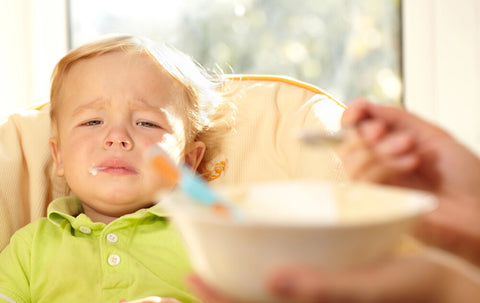Understanding Your Toddler's Sleep and Eating Patterns: When Sleep Increases and Appetite Decreases

Are you observing your little one dozing off more frequently than usual, and perhaps showing less interest in their meals? It's not uncommon for parents to feel concerned when their toddler seems to prioritize sleep over food. Let's explore some reasons behind this behavior and provide reassuring insights to guide you through this phase.
Why Is My Toddler Sleeping a Lot and Not Eating?
-
Growth Spurts: Babies undergo numerous growth spurts in their first year, often resulting in increased sleep and altered eating patterns. These growth spurts are unique to each child, making it challenging to predict their occurrence. During these phases, your toddler may opt for longer naps and consume less during regular meal times. Remember, this adjustment in sleep and appetite is normal and often signifies a growth spurt.
-
Teething: Teething is commonly associated with discomfort and disrupted sleep, but it can also lead to increased slumber in some babies. Irritated gums may cause discomfort during feeding, prompting your child to consume less solid foods. During this period, offer alternative sources of hydration, such as breast milk or formula, to ensure adequate nourishment while your baby navigates through teething discomfort.
-
Illness: It's natural for babies to experience occasional illnesses, including colds or flu-like symptoms. Similar to adults, fighting off an illness can be exhausting for infants, resulting in increased sleep durations. While adequate rest is essential for recovery, monitor your baby for signs of dehydration and seek medical advice if symptoms persist beyond a week or if fever intensifies.
-
Distractions: Toddlers are naturally curious, and their attention can easily be diverted during meal times. Environmental stimuli, such as television or loud noises, may overshadow their interest in eating. Establishing calm and distraction-free meal environments can help enhance your child's focus on food consumption. Additionally, consider interactive feeding methods, like feeding via pouch and spoon, to promote engagement and fine motor skills development.
-
Overheating: Excessive warmth can contribute to your toddler feeling lethargic and opting for longer sleep durations. Ensure the room temperature is moderate and dress your child in breathable fabrics to prevent overheating, especially during warmer months. Creating a comfortable sleeping environment encourages restful sleep without excessive drowsiness during meal times.
Is My Toddler Sleeping Too Much?
It's natural for toddlers, including one-year-olds, to sleep approximately 11-12 hours at night, accompanied by 2-3 hours of daytime naps. These sleep patterns, coupled with developmental milestones like crawling and exploring, indicate healthy growth and development. However, if you notice persistent lethargy or frequent missed feedings, consulting a healthcare professional is advisable to rule out underlying medical concerns.
Conclusion
Understanding why your toddler may be sleeping more than usual and exhibiting changes in their eating habits can alleviate parental concerns and foster a supportive environment for your child's development. Embrace these transitional phases with patience and reassurance, knowing that your attentive care plays a vital role in your toddler's well-being and growth journey.
For additional insights on your baby's temperature and introducing solids, explore our comprehensive guides. Have questions or comments? Share your thoughts below; we're here to support you every step of the way.
References:











